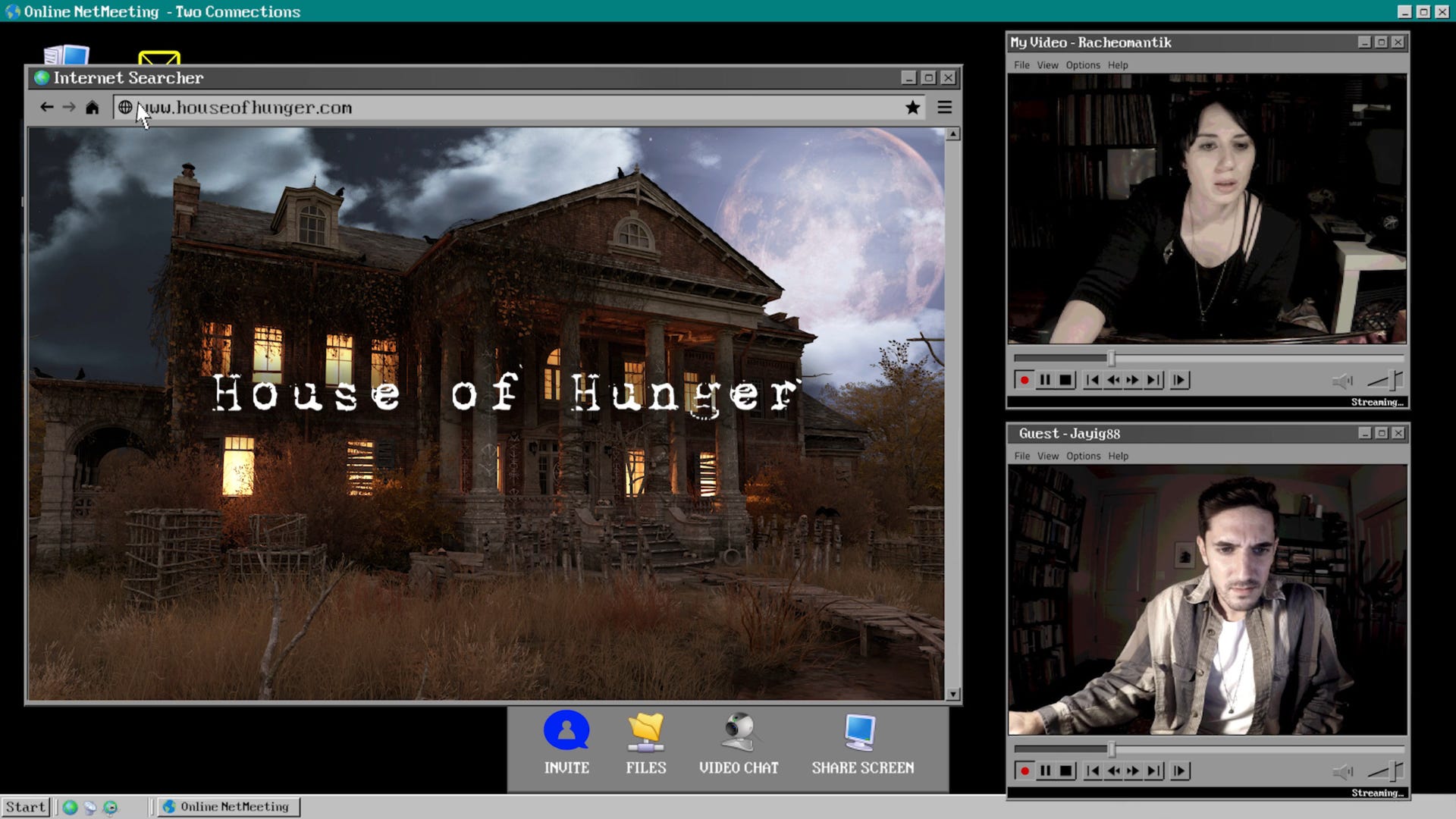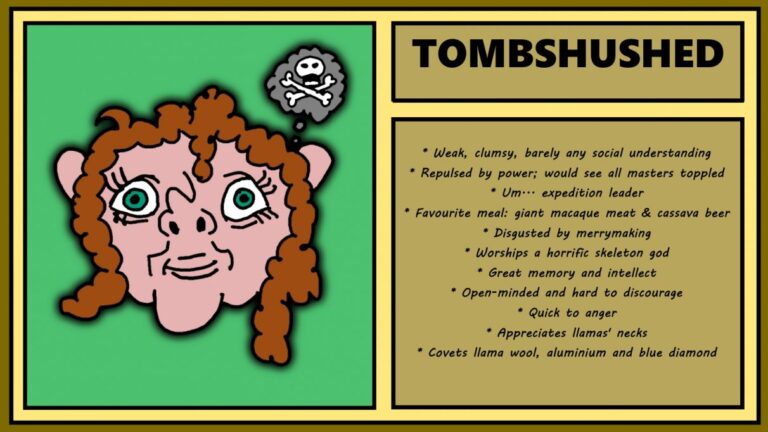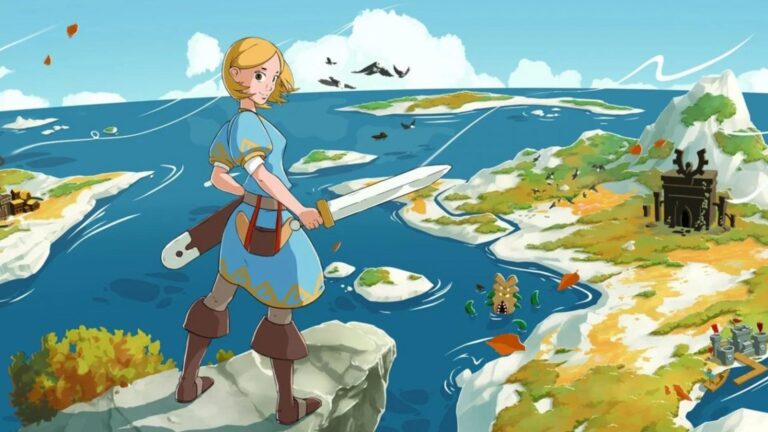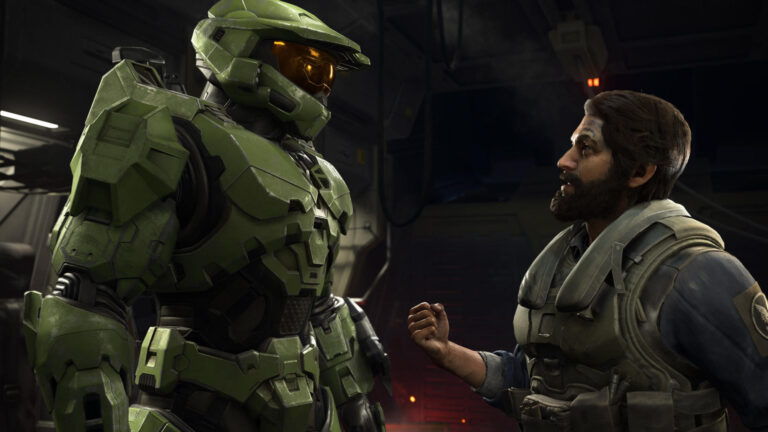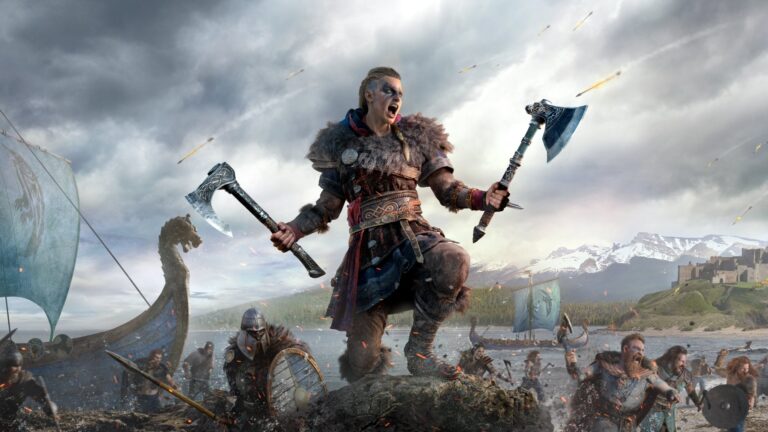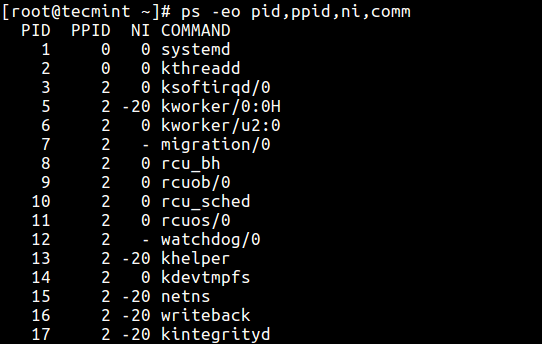“The game is called Bloodthyrster X,” the nerd-coded detective explains, twisting in their ill-fitting suit and furiously shaking an upside-down Xbox controller while their colleagues stare aghast at a TV screen looping a three-second clip of shoddy CGI ultraviolence. “The objective is to run over babies in your minivan while shooting cops and other players. It’s taking over the dark web… and IRL.”
You don’t need me to tell you that fake video games appearing in TV shows and movies are typically absurd and terrible. But just because something is bad, doesn’t mean it’s uninteresting. Having watched dozens of movies and episodes with fake video games, I’m going to celebrate a few over the coming weeks. Some daft fake games have neat ideas, some shows portray their fake games in an interesting way, and some fake games are even quite good. Let’s start now with Deadware, an unknown horror movie which does a great job recreating something a bit bad: a spOooky haunted browser game from 1999.
Released in 2021, Deadware is about Rachel and Jay, two friends in 1999 whose catch-up webcam chat turns spooky. Chasing the AOL Instant Messenger away message of their mutual friend Amy, our duo play a mysterious browser game named House Of Hunger and hey, doesn’t that ghost who keeps appearing remind you of Amy? You’ll never guess what happens. I wouldn’t say it’s a great movie but I had a great time watching it on the sofa with pals, and a lot of our enjoyment came from being thrown back into our youths by its unexpectedly authentic fake vintage browser game.
House Of Hunger is an adventure game venturing into a spooky mansion that turns out to be a sprawling metaphysical complex based on Chinese mythology (very loosely, in the way a 90s browser game absolutely would be). As you might expect from an old browser game, its rooms are mostly a series of static images, and House Of Hunger really looks the part. Some screens are straight-up photos, while others have that classic Photoshop tutorial look. Hand-drawn elements and photosourced parts are oversharpened and drowned in grunge then composited discordantly, and it’s perfect. This isn’t sarcasm. I appreciate this style so much because I was there too, painting bloody Color Burn layers across noisy rusted metal textures in a pirated copy of Photoshop 5. If this were a real game 20 years ago, I could likely tell you which particular Photoshop splat brush pack the developer downloaded from DeviantArt, because I would be using it myself to make angsty art.
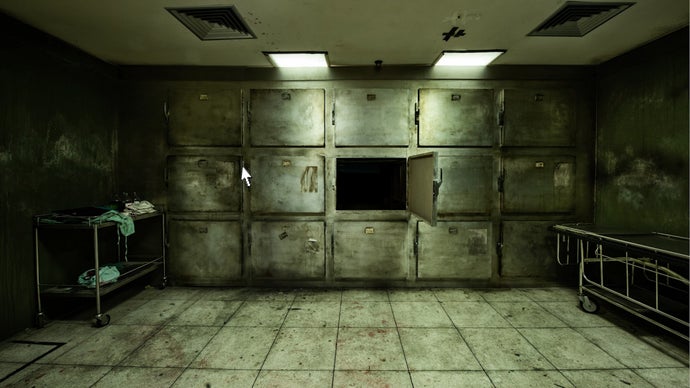
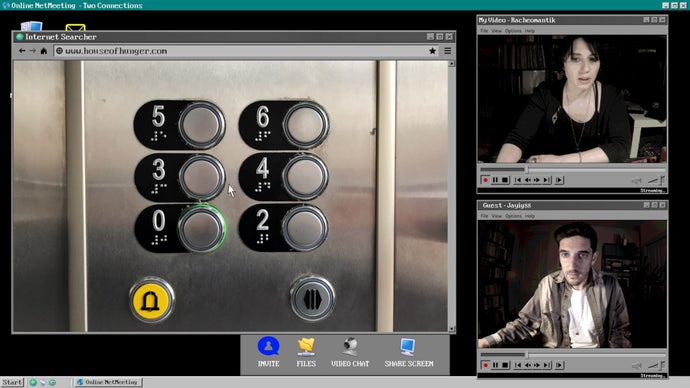
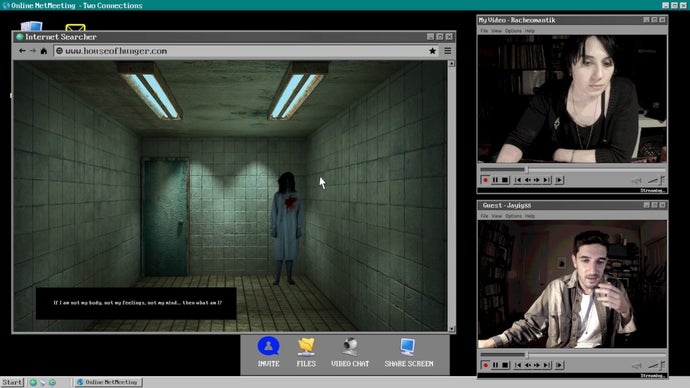
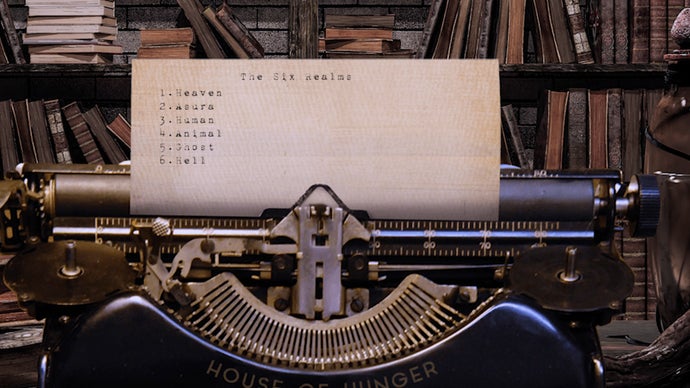
The game’s soundtrack certainly sounds like it was inspired by Akira Yamaoka’s work on Silent Hill and yep, of course it would be. Spot on.
House of Hunger plays pleasantly old too. I was delighted by a seemingly endless corridor where clicking to advance doesn’t get our pals any closer to the end so they click and click and click and BOO! three frames of a jumpscare ghost rush the screen. Progression is often just clicking the right thing, hunting for hotspots on an image map. It’s playing, sure, but also browsing.
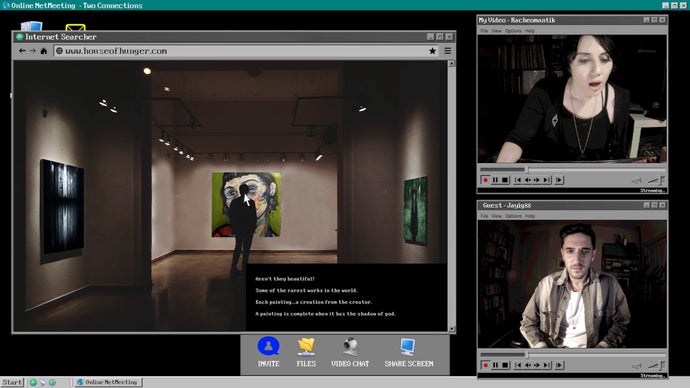
While I keep calling House Of Hunger a “browser game”, sites like this were often web art projects as much as games. Classification didn’t matter; they were curios and mysteries crafted to intrigue and delight. What is this, and who built it, and how, and why, and wow they could afford a dedicated domain and hosting? It was an era where the Internet seemed more magical, a place where maybe strange and terrible things could happen, rather than the known entity it is now: a place where terrible things definitely do happen. How weird to enter a digital haunted house inside the same software that you use to read Hotmail, PlanetQuake, and Xena fansites.
I like that House Of Hunger’s puzzles often require knowledge the game doesn’t contain, a good kick of that ‘mysterious Internet object’ aspect. While Jay in the movie knows a little about mythology himself, I might have been poking at the site across weeks, or chatting with pals over IRC, or trying to research as best I could with 90s search tools. Today, you’d hit Bing and find a dozen guides explaining everything. And I really enjoyed the ouija board section where Rachel and Jay both have to place two fingers on their separate mice as if jointly holding the planchette. This seems technically improbable for a browser game, but making people suddenly use their mice this weird way is a cracking idea for a spooky game.
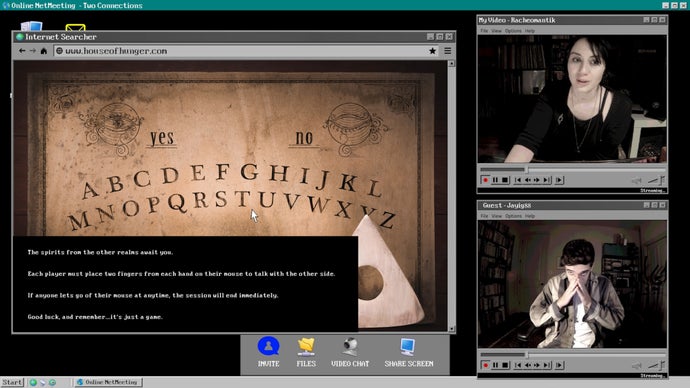
It’s not worth getting hung up on quirks like that in fake video games, I’ve learned after watching dozens recently. Enjoy the good bits and move on. Likewise, don’t worry about computer screens referencing USB 2.0 devices and webdev toolkits that didn’t yet exist, nor how the video chat and Ring-style spooky videos far exceeed 1999 streaming video quality. Besides, this website is haunted. Ghosts aren’t bound by technology, and who knows how they might redesign a video game as you play?
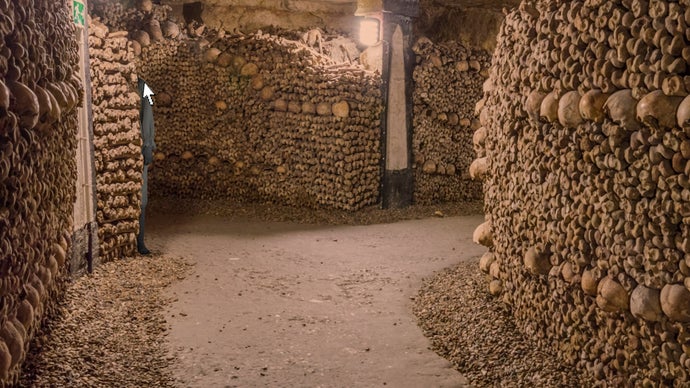
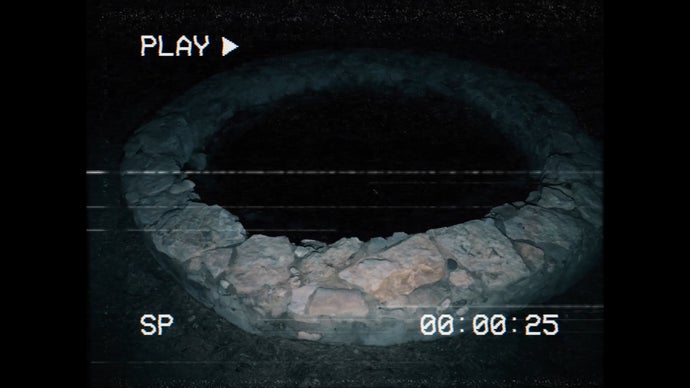
While I can’t say House Of Hunger looks a great game to me in 2023, I’d have been thrilled to encounter it back as a teenager still acclimatising to the Internet. Parts seem so authentic that I did wonder if it was based on a real game. I can tell you that houseofhunger.com is currently held by domain squatters, and the previous owner was a Minnesotan food truck which also sold bottles of its signature Polygamy Sauce. The movie credits (which list a whole seven people, including two thanks) don’t list a particular person as the ‘game’ designer, so maybe it was the work of writer/director/editor Isaac Rodriguez. Perhaps it looks authentically like the work of one person in their bedroom because it was the work of one person in their bedroom? Or a ghost. A ghost could have made it.
You can watch Deadware yourself on Amazon Prime.
Over the coming weeks, I want to tell you about more fake games I have enjoyed in movies and TV. You don’t need me to tell you they’re bad, so let’s see how some are interesting or even good. Some fake games have a design idea or two I enjoy. Some shows have creative ways to show games on the screen. Some handle games culture well even if their games are baffling. Some fake games have become real games. And yes, there’s even good stuff in the innumerable cop dramas about video games making people do murder.
